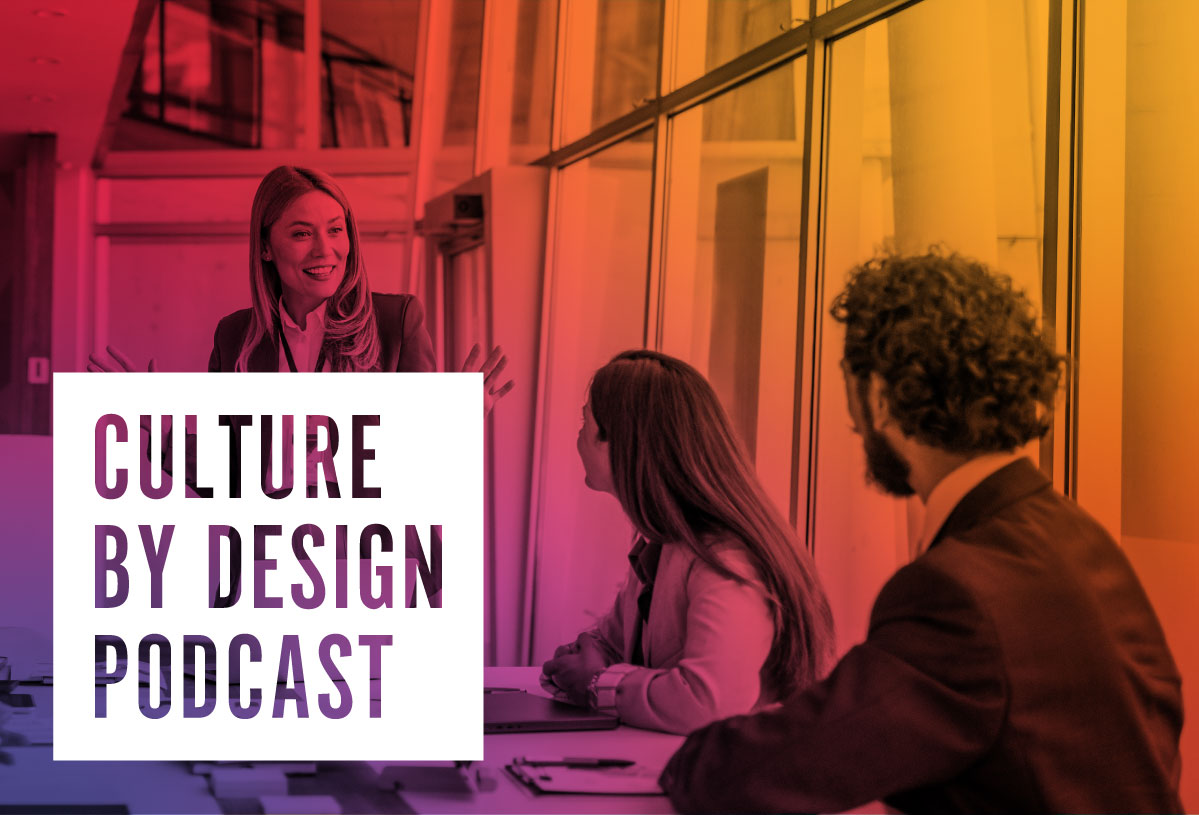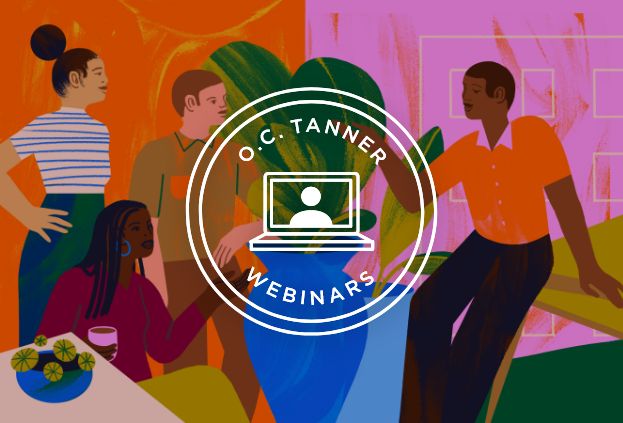Building Employee Engagement: A Formula For Success

Updated on
February 18, 2025
18
February
2025
Employee engagement. It’s been a buzz word for decades, with companies spending billions of dollars each year to achieve and drive it with minimal improvement. But engagement has always been elusive and now, post-pandemic, continues to evolve.
But companies don’t need to guess at how to engage their people. There’s now a formula to employee engagement, based on research, that can help you create a thriving culture where employees are motivated to contribute and connect.
This article will help you better understand employee engagement and the formula to high engagement so you can develop strategies to measure, improve, and maintain engagement at your organization.
What is employee engagement, really?
Traditionally, employee engagement has been a measure of discretionary effort, though its exact definition is debatable depending on which HR expert you ask. Gallup defines engagement as the involvement and enthusiasm of employees in their work and workplace. Qualtrics takes it a step further by including how employees think, feel, act, and are connected at work.
No matter who you ask, most HR professionals agree employee engagement is more than just employee satisfaction—and that it can be largely affected by your employee experience.
Now we are seeing a new type of engagement. Not one where employees just put in more effort, but one where they are connected to and feel they belong in their workplace community. Where they have autonomy and flexibility and feel psychologically safe to innovate, take risks, and find new ways of working. Where they feel mastery in their jobs and fulfillment at work.
The new employee engagement is where employees feel they are a valuable part of their organization and can truly be their best selves at work. Engaged employees don’t just feel motivated; they are connected and empowered to take specific actions and practice behaviors that lead to great work and success.

Why does employee engagement matter?
The research shows that employee engagement has a positive effect on people’s wellbeing— it affects how they work, innovate, and succeed. But how does this translate at the business level?
High employee engagement has a tremendous business impact: quiet quitting costs the world’s economy $9 trillion per year. On the other hand, high engagement is linked to:
- 81% lower absenteeism
- 64% fewer employee safety incidents
- 58% lower patient safety incidents in healthcare facilities
- 41% lower quality defects in manufacturing units
- 18% higher productivity
- 23% higher profitability
- Higher earnings per share
Perhaps the most compelling business case for employee engagement is its impact on employee turnover. Teams with high engagement had 18%–43% lower turnover than companies with low engagement.
All of these data points make employee engagement important to not just how employees feel, but business outcomes overall.
What is the formula for employee engagement?
Our research spotlights six elements that make a workplace a place that not only attracts talent, but that drives longer tenures and increased engagement along the way. We call these the Talent MagnetsTM. The six Talent Magnets are purpose, opportunity, success, appreciation, wellbeing, and leadership.
These Talent Magnets build connection, belonging, mastery, autonomy and fulfillment—contributing to a company culture that employees want to engage with.
Companies who perform well in each Talent Magnet are:
• 4x more likely to have highly engaged employees
• 4x more likely to have promoters on eNPS
• 74% more likely to have increased in revenue in the past year
• 7x more likely to have employees do great work
• 11x less likely to have experienced layoffs in the past year

Purpose
Connecting employees to the organization’s purpose, helping them do work that makes a difference and find meaning in their work. This leads to an increased sense of connection, belonging, and fulfillment at work.
Opportunity
Providing opportunities for employees to grow, build new skills, and develop themselves beyond pay raises and promotions. Giving employees autonomy, flexibility, and a voice to do their work, innovate, and grow. This builds a sense of mastery in their roles and fulfillment at work.
Success
Helping employees innovate, accomplish, be part of a winning team, do great work and find success at work. Success can contribute to a sense of mastery, autonomy, and fulfillment. And feeling success at the individual, team, and organizational level is important to build engagement.
Appreciation
Feeling seen, valued, and appreciated at work. When employees understand how their individual work furthers the company’s purpose and contributes to their team’s and the company’s success, they feel a sense of connection, mastery, and belonging.
Wellbeing
Giving employees balance in their lives, caring about them as a whole person (emotional, physical, and social wellbeing), and providing a sense of inclusion and belonging. This increases connection and belonging at work.

Leadership
Leaders that mentor, coach, inspire, advocate, appreciate, and connect employees build workplaces employees want to engage with. Teams with modern leaders who do these things experience connection, belonging, mastery, and fulfillment at work.
Understanding how our workplaces reinforce, or deter from, each of these Talent Magnets is key to developing cultures where employees truly engage and contribute their best work. Ignoring them means you run the risk of employees disengaging and eventually leaving.
Formula for employee engagement

How can employee engagement be measured?
One way to not effectively measure employee engagement is by only measuring discretionary effort on employee engagement surveys. Asking employees how motivated they feel returns results that are neither accurate nor helpful, no matter how often you do employee pulse surveys.
Instead, take into account the formula for employee engagement and measure the Talent Magnets:
- Purpose (Do employees connect with the purpose of the organization? Do they find purpose and fulfillment in their daily work?)
- Opportunity (Do they feel they have opportunities to grow and develop? Are they able to learn new skills and work on special projects? Do they have autonomy and flexibility in their jobs?)
- Success (Have they been able to achieve and master things at work? Do they feel safe to take risks and have freedom to innovate?)
- Appreciation (Do they feel valued for their efforts and contributions? Do they receive recognition and feel appreciated?)
- Wellbeing (Do they feel connected and included on their teams? Is there a sense of belonging and community at work? Do they have balance and flexibility?)
- Leadership (How effective are leaders at building connection, purpose, and opportunity? Are they practicing modern leadership skills to mentor, advocate, and support employees to achieve success?)
One additional note around measuring employee engagement: don’t just look at one metric of engagement. Being engaged doesn’t mean employees are converting those good feelings into action.
Rather than trying to measure motivation or a desire to try harder, measure the results of that motivation. What great work are employees doing? What actions or behaviors are they adopting that lead to more productivity, innovation, and outcomes?

How can companies improve employee engagement?
Companies often struggle with how to improve employee engagement and try various initiatives with minimal luck. The key may be to not merely put new employee engagement programs in place but to bolster your efforts around the six Talent Magnets and build in ways to strengthen autonomy, flexibility, connection, community, belonging, and fulfillment into the everyday employee experience.
Give employee recognition
Recognition communicates that the employee and their work is valued, that they are an important part of your company’s success. It also acknowledges mastery and belonging and connects employees to company purpose—all crucial aspects of employee engagement.
Recognize all types of accomplishments: extra effort, above and beyond work, career milestones, safety, teamwork, innovation, etc. Provide tools and training so everyone on your team understands the value of recognition and how to recognize others.
Finally, ensure recognition is personalized and includes others. Make it an integrated part of your organization by building it into a part of your everyday employee experience and daily flow of work.
Build connection and belonging
Employees want to engage with teams, leaders, and organizations they trust and feel connected to. But connection and belonging require more than fun team building activities.

Here are some ways to foster authentic connections at work:
- Provide opportunities for socialization and connection on the clock.
- Encourage leaders to have regular one-on-ones with their people and give recognition.
- Celebrate company milestones and achievements together.
- Tie employees’ work to your organization’s purpose and goals.
- Allow peers to recognize and appreciate one another.

Provide opportunities for growth
Growth opportunities give team members the chance to demonstrate mastery and increase their autonomy. They are one way you can show that your company is invested in each employee’s growth and success.
Opportunities for growth go beyond promotions and pay increases. True growth opportunities include things like working on special projects, having a seat at the table with senior leaders, or participating in cross-functional teams.
What does growth really look like? It’s an opportunity to build skills and knowledge, both at work and outside of work, and having a voice in decisions and change. It’s providing autonomy and flexibility in not just where and when employees work, but how they work, take risks, and innovate. And it’s ensuring all employees, not just the select few, have these opportunities.
Employees were more engaged when they had growth opportunities like working on special projects.


Start on day one
Don’t wait to begin thinking about engagement. In reality, employee engagement begins before onboarding. Once new hires have decided to join your company, solidify their decision to engage with you through an onboarding experience that includes connection, appreciation, and opportunity.
Your onboarding program should provide opportunities for socialization and recognition, as well as gifts and awards that connect employees back to your organization. Remember, this is your chance to show new hires a culture they’ll be excited to engage with, hopefully for years to come.

Ideal onboarding experiences increase employee engagement 135%
Get more tips for your employee engagement strategies and read more about the formula for great workplaces in our Global Culture Report.



